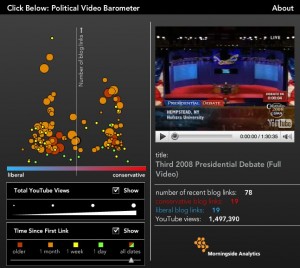Yochai Benkler gave a talk today in reception of his appointment as the Jack N. and Lillian R. Berkman Professor of Entrepreneurial Legal Studies at Harvard Law School. Jack Berkman (now deceased) is the father of Myles Berkman, whose family endowed both the Berkman Center (where I am a fellow) and Benkler’s professorial chair.
His talk was titled “After Selfishness: Wikipedia 1, Hobbes 0 at Half Time” and he sets out to show that there is a sea change happening in the study of organizational systems that far better reflects how we actually interact, organize, and operate. He explains that the collaborative movements we generally characterize as belonging to the new internet age (free and open source software, wikipedia) are really just the instantiation of a wider and pervasive, in fact completely natural and longstanding, phenomena in human life.
This is due to how we can organize capital in the information and networked society: We own the core physical means of production as well as knowledge, insight, and creativity. Now we’re seeing longstanding society practices, such as non-hierarchical norm generation and collaboration more from the periphery of society to the center of our productive enterprises. Benkler’s key point in this talk is that this shift is not limited to Internet-based environments, but part of a broader change happening across society.
So how to we get people to produce good stuff? money? prizes? competition? Benkler notes the example of YouTube.com – contributors are not paid yet the community thrives. Benkler hypothesizes that the key is that people feel secure in their involvement with the community: not paying but creating a context where people feel secure in their collaboration in a system. Another example is Kaltura.com: Benkler attributes their success to ways they have found to assure contributors that when you produce you will be able to control what you produce. Cash doesn’t change hands. The challenge is to learn about human collaboration in general from these web-based examples. In Benkler’s words “replacing Leviathan with a collaborative system.”
Examples outside the web-based world include GM’s experience with it’s Fremont plant. This plant was among the worst performance in the company. GM shut it down for two years and brought it back 85% staffed by the previous workforce, the same union, but reorganized collaboratively to align incentives. This means there are no longer process engineers on the shop floor and direct control over experimentation and flow at the team level is gone. The plant did so well it forced the big three to copy although they did so in less purely collaborative ways, such as retaining competitive bidding. Benkler’s point is that there is a need for long term relationships based on trust. An emphasis on norms and trust, along with greater teamwork and autonomy for workers implies a more complex system with less perfect control than Hobbes’ Leviathan vision. The world changes too quickly for the old encumbered hierarchical model of economic production.
Benkler thinks this leads us to study social dynamics, an open field without many answers yet. He also relates this work to evolutionary biology: from group selection theory of the 50’s to the individualistic conception in Dawkins’ theory of the selfish gene in the 70’s, and now to multi-level selection and cooperation as a distinct driving force in evolution as opposed to the other way around. This opens a vein of research in empirical deviations from selfishness, as a pillar of homo economicus, just as Kahneman and Tversky challenged the twin pillar of rationality.
Benkler’s vision is to move away from the simple rigid hierarchical models toward ones that are richer and more complex and can capture more of our actual behavior, while still being tractable enough to produce predictions and a larger understanding of our world.
Crossposted on Victoria Stodden







 Click Here
Click Here